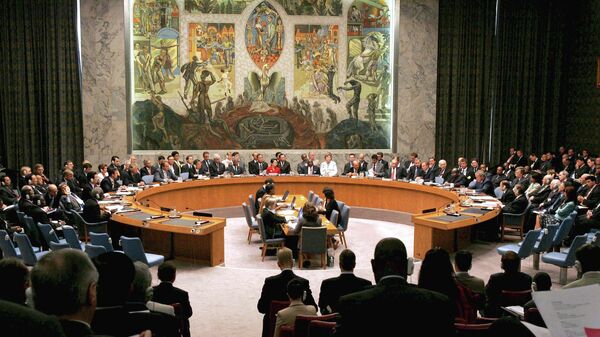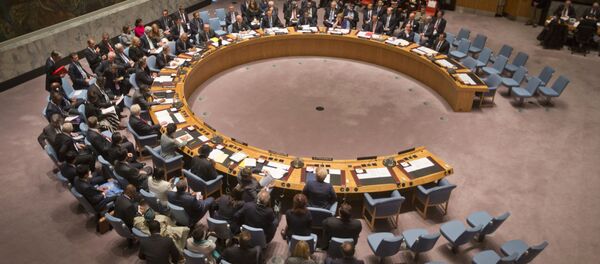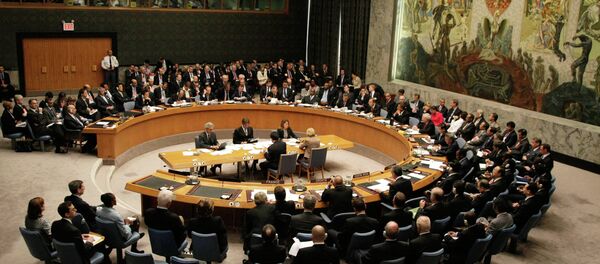Any permanent member can use its veto at any given time. If a permanent member does not agree with the proposed resolution, but does not want to resort to its veto, the member may abstain from voting and thus enable the adoption of a resolution if it gets the required nine votes.
On February 18, 2011, the United States vetoed the resolution condemning the expansion of Israeli settlements in the occupied Palestinian territories. Other members of the Council voted for the resolution.
On November 11, 2006, the United States vetoed the draft resolution condemning Israel for hitting the Gaza Strip city of Beit Hanoun with an artillery strike, which killed 19 people and injured dozens. Ten Security Council members voted in favor of the resolution submitted by Qatar, while the remaining four members abstained.
On July 13, 2006, the United States vetoed the draft resolution on Israel, submitted by Qatar on behalf of Arab countries, demanding that Israel cease its military incursion into the Gaza Strip.
On October 5, 2004, the United States vetoed the draft resolution demanding an immediate cessation of the Days of Penitence operation being conducted by Israel in Gaza. The draft resolution confirmed the United Nations’ intention to follow the "Roadmap for Peace" plan, developed by the Quartet on the Middle East: the United States, the European Union, Russia and the United Nations, for the peaceful resolution of the Middle East conflict. The plan also demanded the withdrawal of Israeli troops from the Palestinian territories.
On March 25, 2004, the United States vetoed the draft resolution condemning the assassination of Sheikh Ahmed Yassin, the leader of Palestinian movement Hamas. The draft resolution was introduced by Algeria and Libya. The United States was the only country to vote against it. Eleven delegations, including Russia, voted in favor. The United Kingdom, Germany and Romania abstained.
On October 14, 2003, the United States vetoed the draft resolution condemning Israel's construction of a protective wall. In this document, the Security Council condemned plans to build another 600 houses in Israeli settlements in the Palestinian territories. US officials urged the Security Council to issue a document calling for the elimination of terrorist organizations in the Middle East. The United States was the only country that opposed the resolution.
On September 16, 2003, the United States vetoed the draft resolution demanding that Israel not deport Palestinian President Yasser Arafat. Eleven Security Council members voted in favor of the resolution. United Kingdom, Germany and Bulgaria abstained. The vetoed resolution demanded "the complete cessation of all acts of violence, including all acts of terrorism" and expressed full support for the "Roadmap for Peace" plan.
On December 20, 2002, the United States vetoed the draft resolution condemning Israel for the killing of three UN workers in the Gaza Strip and the West Bank of the Jordan River. Twelve Security Council members supported the resolution submitted by Syria.
On June 30, 2002, the United States vetoed the suggestion to continue the UN peacekeeping mission in Bosnia.
On December 15, 2001, the United States vetoed the draft resolution on sending international observers to the conflict zone in the Middle East. The document contained statements condemning Israeli and Palestinian "acts of terror," as well as requirements to end the 15-month military confrontation.
On March 27, 2001, The United States vetoed the draft resolution calling for the introduction of "observational forces" to the Gaza Strip and the West Bank.





